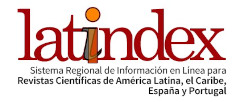CONTINUING EDUCATION TO FOOD WASTE MANAGEMENT
A SYSTEM DYNAMICS SIMULATION
DOI:
https://doi.org/10.54399/rbgdr.v19i2.6739Palabras clave:
Food waste, Continuing environmental education, Systems dynamics, Public policy, Municipal solid wasteResumen
This study aims to evaluate the impact on municipal food waste management, comparing a prevention policy based on continuing environmental education program and a command-and-control policy. In a Brazilian city, four scenarios were analyzed using a system dynamics model. The results show that continuing environmental education is a good supplement to achieving the law goals. Hence together, they obtain the best results for food waste management. Few studies investigate the relation of continuing education to municipal waste management. Therefore, a better understanding of the impact of these actions in the long term is needed. Moreover, the research of dynamic simulation models as a tool to explore the interactions of environmental education and food waste management and assess the multidimensional impact of the policy is still rare and needs further study. The transition into a more sustainable food consumption through achieving food waste reduction and sustainable municipal solid waste management are great challenges considering the dependence on the individual behavior of citizens. Environmental education is a path to reducing food waste and promoting waste diversion. The study is socially relevant and helps policymakers take the necessary actions to optimize food waste management with social participation, so the paper brings an important gap and interesting result to claim for more interdisciplinary research.
Descargas
Publicado
Cómo citar
Número
Sección
Licencia
Derechos de autor 2023 RBGDR

Esta obra está bajo una licencia internacional Creative Commons Atribución-NoComercial 4.0.
Os autores que tiverem seus trabalhos aceitos e publicados na Revista Brasileira de Gestão e Desenvolvimento Regional estarão sujeitos a política de direitos autorais CC https://creativecommons.org/licenses/by/4.0/.
Em caso de aceite do artigo para publicação, os direitos autorais são automaticamente cedidos para a Revista Brasileira de Gestão e Desenvolvimento Regional.

















